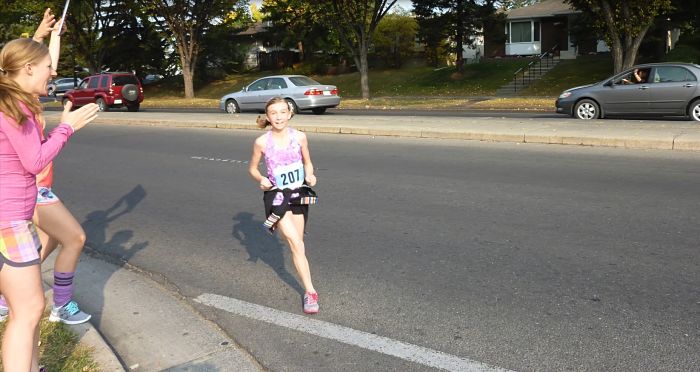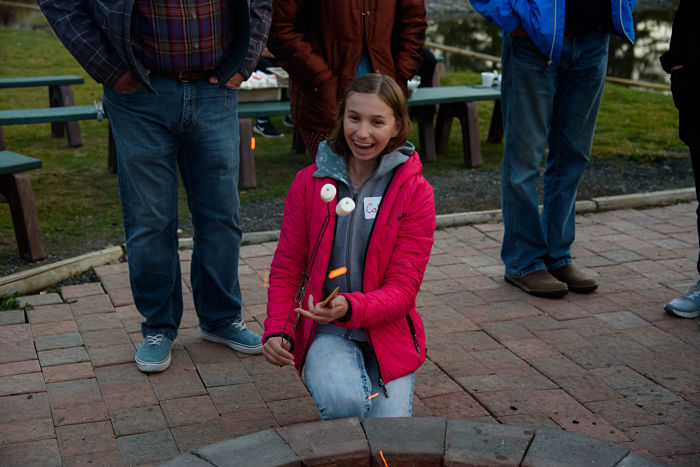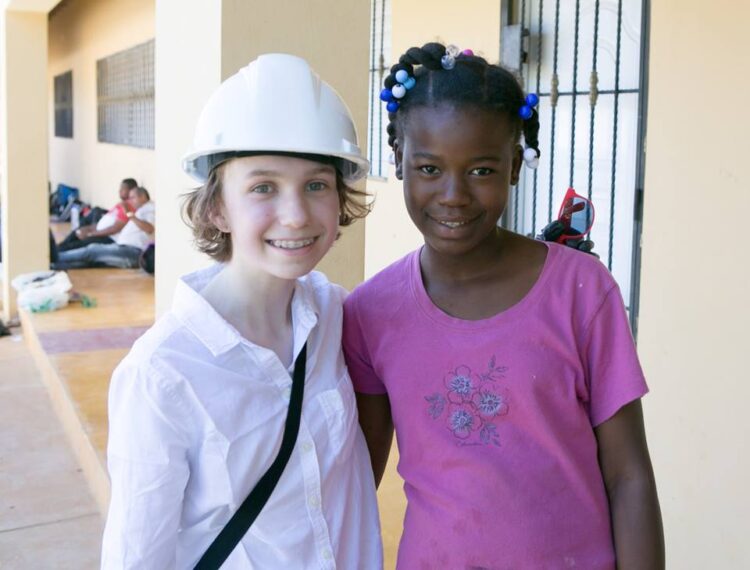A cross-country runner, Irish dancer and self-described science nerd, Colette was just a normal 13-year old kid. But there was nothing normal about the pain she was experiencing in her stomach. Due to the pain and an accompanying virus, Colette visited her doctor. The doctor ordered scans which revealed a mass in her stomach.

Colette and her family were hopeful that the mango-sized tumour removed from her abdomen would test benign.
On July 24, 2014, Colette and her parents received the results.
Before the mass in her stomach was discovered, Colette loved to dance. She had been an Irish dancer since grade one. It was a major part of who she was. During surgery, the tumour was found to be wrapped around a femoral nerve, which meant they had to cut some of the nerve to remove the tumour. A 12-cm gap was left in her nervous system’s electrical circuit. Now, messages from her brain that tell her leg to move no longer get there.
Colette could no longer use her knee properly for walking, dancing, running or jumping. Once a cross-country runner, she was now using a walker just to move around a room.
But that wasn’t all that Colette was facing in those first days after surgery. Unfortunately, the tumour was not benign. Colette was diagnosed with synovial sarcoma.
“I didn’t know what to think, which I guess, begs the question: What do you think when you are first diagnosed with cancer? Maybe treatment options? At least something. Well, I thought of nothing. For the first time in my life, I drew a complete blank. I didn’t know what to think.”—Colette.
On the second day of her grade-9 school year, Colette had her first chemo treatment. She describes it as having the worst stomach flu, over and over again. She couldn’t attend school due to feeling ill or her compromised immune system. She began to feel isolated from her friends. Would she ever feel like a “normal teenager” again?
While on treatment, Colette was registered for a weekend camp at Kids Cancer Care’s Camp Kindle. Colette and her parents were nervous. Leaving home in Calgary, where she was visiting the hospital every other day, to head out to Camp Kindle in rural Alberta, was unnerving. But Camp Kindle is unique – the facilities are tailor made for kids on and off treatment. The ReKindle Clinic on site takes care of everything. Nurses ensure medications are double-checked. And Colette no longer felt isolated. “At camp, there is an unspoken understanding that brings everyone together. I could just be me, not the girl with cancer, because there, I wasn’t different.”

After multiple surgeries, chemotherapy and 28 days of radiation, Colette finished treatment in January 2015. Life will always be a little different for Colette. She has undergone nerve transfer surgery in the hopes of gaining some function in her quad, but for now, it is a waiting game and she is grateful for even the slightest improvements.
“I like to think that my doctors and surgeons saved my life and Kids Cancer Care helped put me back together,” says Colette. “Kids Cancer Care has been with me every step of the way”
Colette has experienced all Kids Cancer Care has to offer for kids affected by childhood cancer – she’s been a part of the Teen Leadership Program, PEER Program, and more.

Kids on treatment aren’t the only ones who feel isolated. Colette’s parents have also been on the Kids Cancer Care Dragon Boat Parent Team and to parent activities like yoga and cooking class, where they can meet parents who have been through the same worries, anguish and pressure.
“I’m setting my sights on new sports and experiences. Today, I feel like I am back to being a typical teenager,”—Colette.
But there’s more to Colette’s story.
Last summer, Colette was able to expand some research for a science fair she had done during her cancer battle and joined Kids Cancer Care researcher Dr. Aru Narendran in his lab as a Kids Cancer Care summer research student. Colette was able to see firsthand, research that may one day change the course of childhood cancer forever. Colette studied a unique new drug against three types of neuroblastoma and found that it inhibited growth in all three by stopping the action of a protein called EZH2, which is involved in blocking tumour suppressor genes. Colette’s findings seem to suggest that the drug may not only be inhibiting cancer growth; they may actually be inducing cellular death in the neuroblastoma cells. Another promising attribute of the drug is it doesn’t seem to attack regular cells, which could mean fewer side-effects for patients.
Colette’s life was greatly impacted by childhood cancer, but Colette has set her sights on being part of the quest for a cure. She plans to pursue a Bachelor of Health Sciences at the University of Calgary and follow that with post-graduate work in pediatric cancer research.
Colette believes that “one day with further research, cancer treatment will be less harsh or hopefully, someday, there may be no cancer at all!”




































